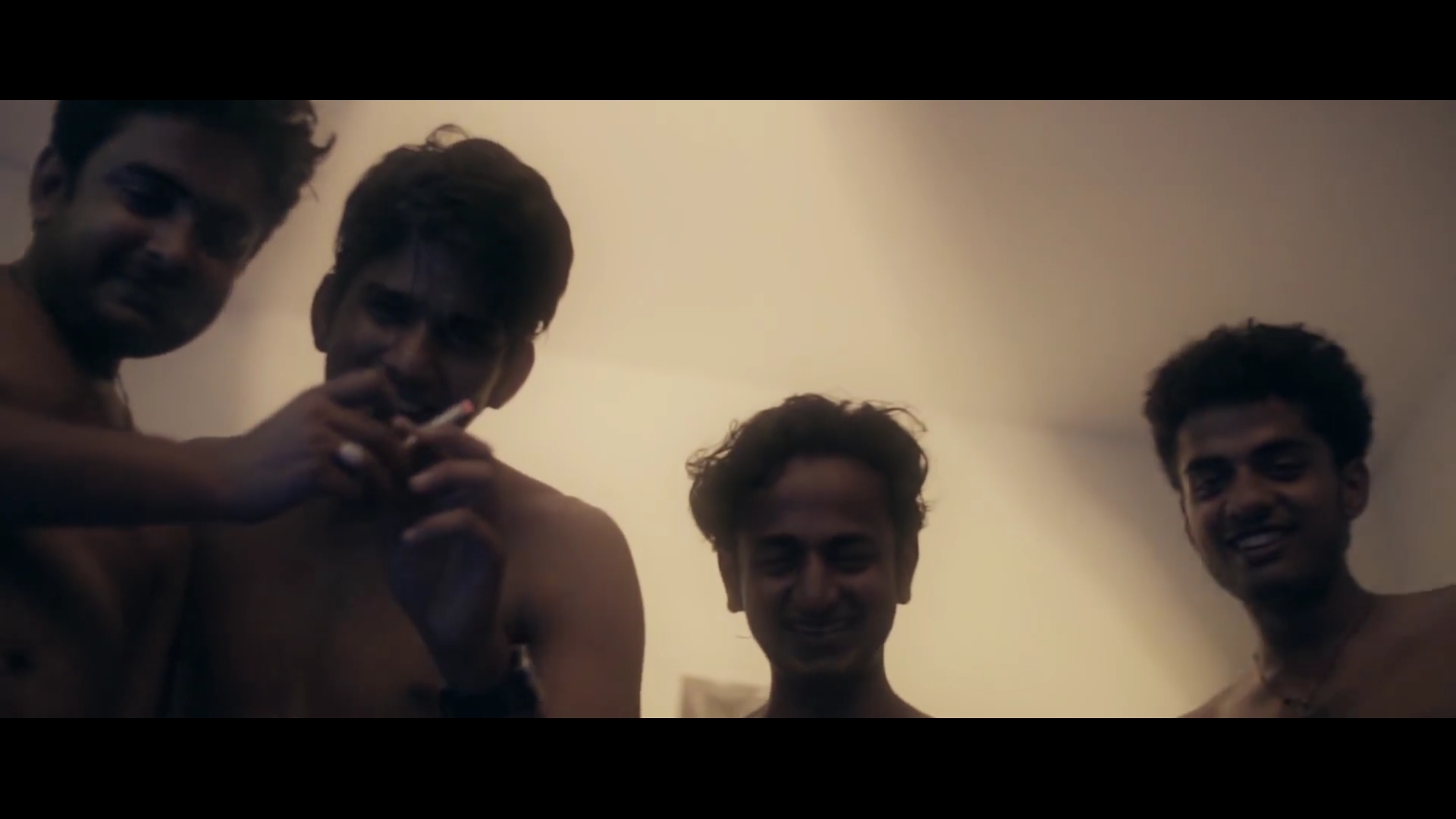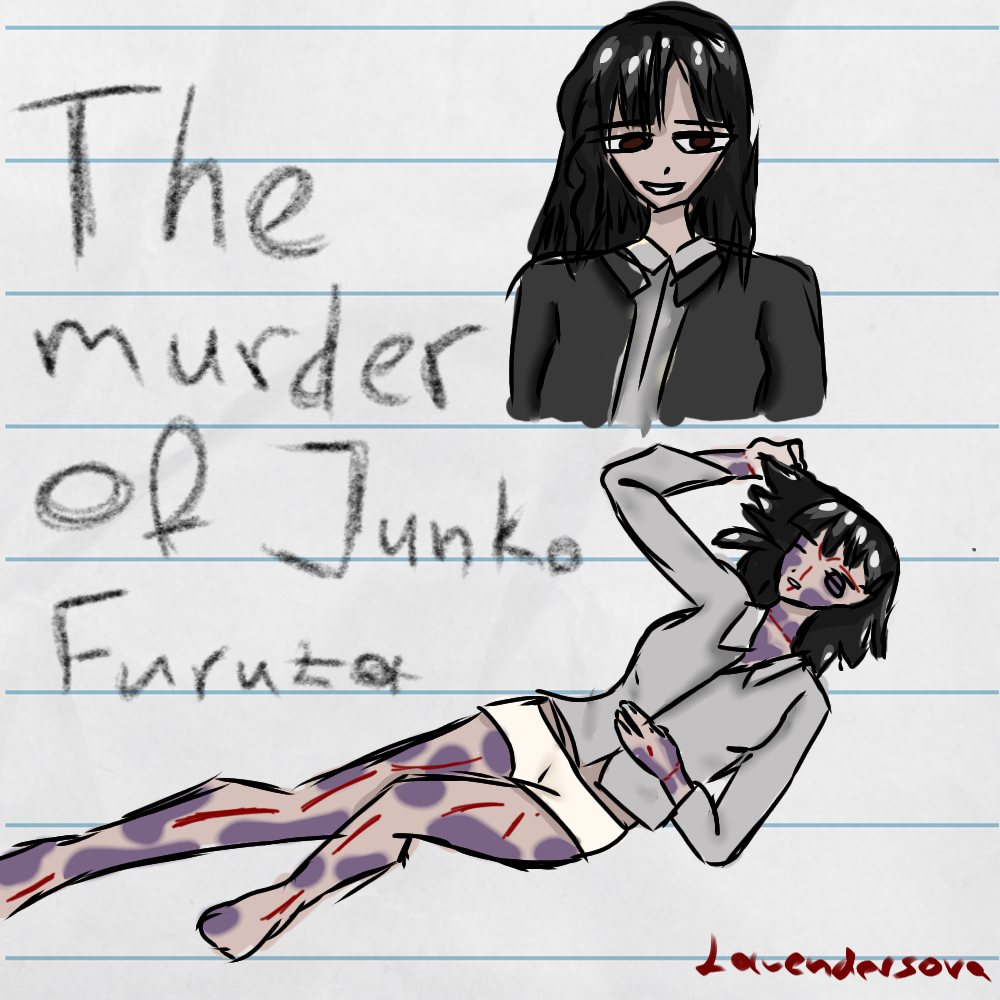The Dark Legacy Of Junko Furuta: Unveiling The Truth Behind Japan's Most Infamous Crime
When we talk about dark chapters in history, the name Junko Furuta sends chills down the spine of many. This isn't just a story; it's a harrowing tale of cruelty, despair, and the depths of human depravity. The case of Junko Furuta remains etched in the annals of Japanese crime history, a reminder of how far humanity can fall. It's not just about one girl's tragic fate but also about the monstrous acts committed by four teenage boys over a period of 44 days.
Imagine being a 14-year-old girl, full of dreams and aspirations, only to have your life turned into a living nightmare. This is exactly what happened to Junko Furuta in November 1988. What started as a seemingly random encounter turned into one of the most shocking and horrifying crimes in modern Japanese history. Her story has been retold countless times, yet it never fails to shock and sadden those who hear it.
This article delves deep into the tragedy of Junko Furuta, exploring the events that unfolded, the psychological impact on society, and the lessons we can learn from this harrowing incident. We'll also take a look at how her story has influenced Japanese media and culture, ensuring that her memory lives on in more ways than one. Let's dive in, shall we?
Table of Contents
- Biography of Junko Furuta
- Crime Details
- The Perpetrators
- Impact on Media
- Societal Effects
- Legal Outcomes
- Lessons Learned
- Cultural Significance
- Psychological Insights
- Conclusion
Biography of Junko Furuta
Early Life and Background
Before diving into the chilling details of her ordeal, let's take a moment to remember who Junko Furuta was. Born on April 27, 1974, in Tokyo, Japan, Junko grew up in a typical Japanese family. She was a bright and cheerful student at Aoyama Gakuin Junior High School, known for her friendly nature and academic prowess. Her life seemed promising until that fateful day in November 1988.
Below is a quick glance at her personal details:
| Name | Junko Furuta |
|---|---|
| Date of Birth | April 27, 1974 |
| Place of Birth | Tokyo, Japan |
| Occupation | Student |
| School | Aoyama Gakuin Junior High School |
Her life was tragically cut short, but her story has left an indelible mark on Japanese society.
Crime Details: A Nightmare Unfolds
On November 25, 1988, everything changed for Junko Furuta. After attending a school event, she was approached by four teenage boys who claimed they wanted her help with a survey. Little did she know, this was a ruse to lure her into their trap. The boys, aged between 14 and 17, took her to an abandoned apartment where they subjected her to unimaginable horrors over the next 44 days.
During this time, Junko endured physical, emotional, and sexual abuse. She was beaten, tortured, and repeatedly raped by the perpetrators. Her cries for help fell on deaf ears as her captors showed no mercy. The sheer brutality of their actions is something that continues to haunt the memories of those who hear about it.
Key Events
- November 25, 1988: Junko is abducted.
- December 2, 1988: The boys take a photo of Junko in a compromising position, intending to blackmail her.
- January 4, 1989: Junko dies from severe injuries sustained during her captivity.
- January 8, 1989: Her body is discovered in a toolbox dumped in a river.
The Perpetrators: Who Were They?
Understanding the perpetrators is crucial to comprehending the depth of this tragedy. The four boys involved in Junko's abduction and subsequent death were not hardened criminals but rather teenagers from relatively normal backgrounds. This fact makes their actions even more disturbing, raising questions about the psychological factors that led them to commit such heinous acts.
Profiles of the Boys
- Leader: A 17-year-old boy who orchestrated the entire operation.
- Follower #1: A 16-year-old who was heavily influenced by the leader.
- Follower #2: A 15-year-old who participated out of fear and peer pressure.
- Follower #3: A 14-year-old who was the youngest but equally involved in the abuse.
Psychologists have speculated that the leader suffered from severe personality disorders, which influenced the actions of the others. This case highlights the dangers of group dynamics and the power of manipulation among adolescents.
Impact on Media: A Story That Won't Fade
The tragedy of Junko Furuta has been a recurring theme in Japanese media over the years. From documentaries to fictionalized accounts, her story has been told and retold in various forms. Movies like "Audition" and "Junko" have drawn inspiration from her case, exploring the darker aspects of human nature.
The media coverage of her case also sparked debates about censorship and the portrayal of violence in films and television. Many argued that the graphic nature of these portrayals could desensitize society to such crimes, while others believed it was necessary to shed light on the realities of violence against women.
Documentaries and Films
- "Junko" (2009): A fictionalized account of the events.
- "Audition" (1999): Inspired by the psychological aspects of the case.
- "Junko Furuta: The True Story" (2021): A documentary exploring the real events.
Societal Effects: A Wake-Up Call
The impact of Junko Furuta's case on Japanese society cannot be overstated. It led to significant changes in the country's legal system, particularly in how juvenile crimes were handled. The Japanese government introduced stricter laws for juveniles, recognizing that age alone should not shield individuals from accountability for their actions.
Moreover, the case brought attention to the issue of violence against women and children, prompting discussions about prevention and education. Schools began implementing programs to teach students about consent, empathy, and the consequences of their actions.
Key Changes
- Stricter penalties for juvenile offenders.
- Increased focus on mental health and counseling for troubled youth.
- Public awareness campaigns about violence prevention.
Legal Outcomes: Justice Served?
The legal proceedings surrounding Junko Furuta's case were complex and controversial. Due to their ages, the perpetrators were tried as juveniles, which limited the severity of their sentences. The leader was sentenced to life in prison, while the others received varying terms based on their involvement.
This outcome sparked outrage among the public, who felt that justice had not been served. Many believed that the severity of the crime warranted harsher punishments, regardless of the perpetrators' ages. The case highlighted the flaws in the juvenile justice system and the need for reform.
Juvenile Justice Reforms
- Lowering the age of criminal responsibility.
- Introducing mandatory psychological evaluations for juvenile offenders.
- Enhancing transparency in juvenile court proceedings.
Lessons Learned: Moving Forward
From the tragedy of Junko Furuta, we can draw several important lessons. Firstly, the importance of education and awareness cannot be overstated. Teaching young people about empathy, respect, and the consequences of their actions is crucial in preventing similar tragedies in the future.
Additionally, the case underscores the need for a robust legal system that holds individuals accountable for their actions, regardless of their age. It also highlights the importance of mental health support for troubled youth, addressing the root causes of violent behavior before it escalates.
Cultural Significance: Remembering Junko
Junko Furuta's story has become a symbol of the fight against violence and injustice. Her memory lives on through the efforts of those who strive to create a safer world for future generations. Memorials and educational programs have been established in her honor, ensuring that her legacy endures.
The cultural significance of her case extends beyond Japan, serving as a reminder of the universal need for compassion, understanding, and justice. Her story continues to inspire change, one step at a time.
Psychological Insights: Understanding the Mind of a Perpetrator
Psychologists have long debated the factors that lead individuals to commit such heinous acts. In the case of Junko Furuta, the leader's personality and the dynamics of the group played significant roles. Understanding these factors can help prevent similar incidents in the future.
Research has shown that many perpetrators of violent crimes suffer from personality disorders, trauma, or other psychological issues. Addressing these underlying problems through early intervention and support can make a significant difference in preventing violence.
Conclusion: A Call to Action
In conclusion, the case of Junko Furuta is a stark reminder of the darkness that can exist within humanity. While her story is tragic, it also serves as a catalyst for change. By learning from her experience, we can work towards creating a safer, more compassionate world.
I urge you to share this article, spread awareness, and support initiatives aimed at preventing violence and promoting justice. Together, we can honor Junko's memory by striving for a better future for all.


